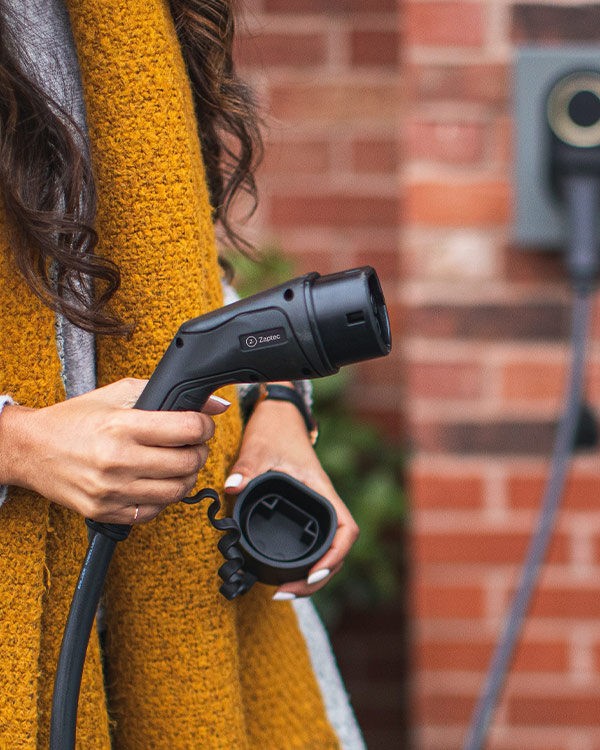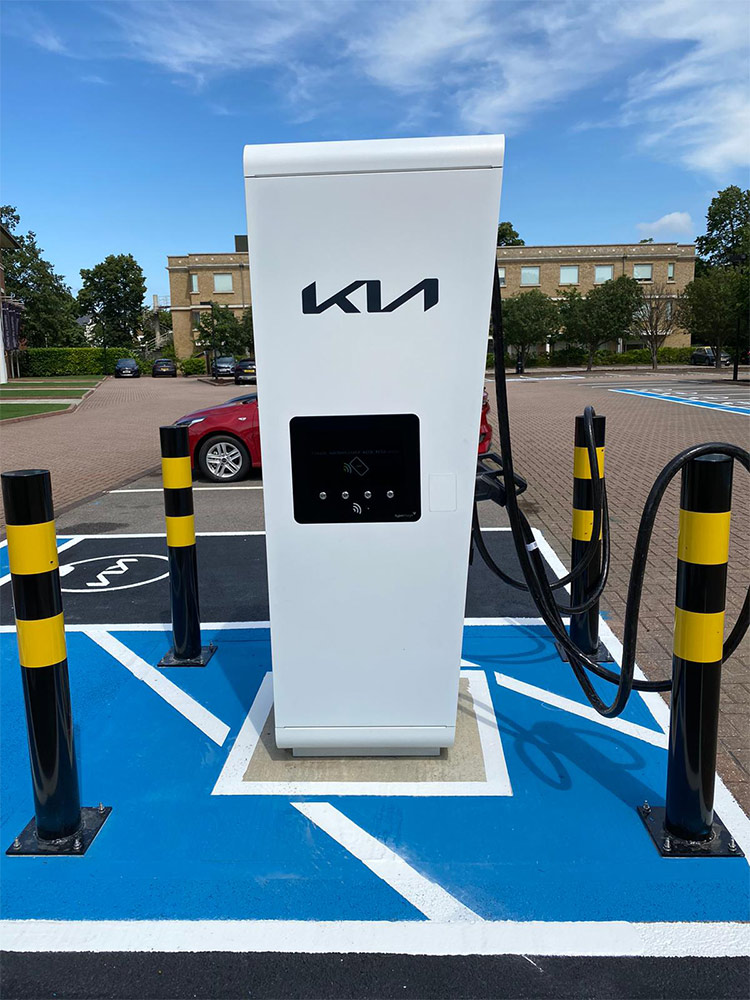+44 01372 672 675 info@sustainable-electrical.com
Our team are experts when it comes to installing residential and commercial Electric Vehicle Chargers.
Get a quoteAfter a detailed electrical site survey to ensure that your electrical system is suitable for a new EV charger, our team will advise on the best solution for your home or business, helping you to navigate from the wide range of electric vehicle chargers available.


We supply and install a collection of EV charging stations specifically approved for commercial properties.
Our leadership team each have over 28 years experience working within the electrical industry.
Our team regularly provide installations across London and Surrey as well as travelling nationally when needed.
Our team are reliable fully qualified and accredited electricians.
 Peter Grimes15 March 2024SES attended promptly to an UF Heating issue and diagnosed & repaired the problem quickly. I use the company regularly for their continued professionalism and quality of work.
Peter Grimes15 March 2024SES attended promptly to an UF Heating issue and diagnosed & repaired the problem quickly. I use the company regularly for their continued professionalism and quality of work. Matt Bull28 February 2024John and the team installed a solar and battery system for us. Really pleased with the look and performance of the system.
Matt Bull28 February 2024John and the team installed a solar and battery system for us. Really pleased with the look and performance of the system. Max Vincze20 February 2024Needed some help with kitchen electrics as they kept tripping. SES came round within an hour, identified the issue checked other sockets, and advised on next steps. Excellent service - wouldn't hesitate to use again.
Max Vincze20 February 2024Needed some help with kitchen electrics as they kept tripping. SES came round within an hour, identified the issue checked other sockets, and advised on next steps. Excellent service - wouldn't hesitate to use again. Greg Mina18 February 2024Needed an electrician and fast…..bedroom lights were faulty, not ideal with a baby and lights randomly turning on and off! SES were over within 30 minutes of contacting……2 friendly electricians turned up and sorted the problem quickly and efficiently. Will definitely be using again in the future and would highly recommend.
Greg Mina18 February 2024Needed an electrician and fast…..bedroom lights were faulty, not ideal with a baby and lights randomly turning on and off! SES were over within 30 minutes of contacting……2 friendly electricians turned up and sorted the problem quickly and efficiently. Will definitely be using again in the future and would highly recommend.
To get an EV charger installed at home, you can follow these steps:
By following these steps, you can install an EV charger at home and enjoy the convenience of charging your electric vehicle from the comfort of your home.
In the UK, it’s unlikely you will need planning permission for an EV charging point. Here are some general guidelines:
It is important to note that these guidelines are general and may vary depending on the specific circumstances of your installation. It is recommended to consult with your local planning authority to determine whether planning permission is required for your installation.
According to The Town and Country Planning (General Permitted Development) (England) Order 2015 (as amended), Schedule 2, Part 2, Class D, planning permission is not necessary for installing a wall-mounted electric vehicle charging point, as long as the off-street parking area is legally used.
To qualify as permitted development, the charging point and its casing should not:
Additional considerations may apply, so it is advisable to confirm with your local planning team before installing an EV charging point.
It is possible to install your own EV charger in the UK. Still, it is recommended that the installation is carried out by a qualified electrician who has experience with EV charger installations. This is because EV chargers require specialised electrical work and installation procedures to ensure they are safe and meet UK regulations.
It is also important to note that some EV chargers may require a dedicated circuit, so your electrical panel may need to be upgraded to accommodate the new circuit. A qualified electrician can assess your electrical system and recommend any necessary upgrades.
If you decide to install the EV charger yourself, you should have the knowledge and skills to complete the installation safely and comply with UK regulations. It is essential to follow the manufacturer’s instructions carefully and to obtain any required permits and approvals from your local authority.
In any case, it is recommended that you consult with a qualified electrician before attempting to install an EV charger yourself to ensure that the installation is done correctly and safely.
Yes, it is possible to have two EV chargers at home in the UK, provided that your electrical system and circuit capacity can support the additional load.
However, it is essential to note that the electrical demand of two EV chargers may exceed the capacity of a standard home electrical system, which could result in electrical issues such as tripped breakers or voltage drops. As a result, it is recommended that you consult with a qualified electrician before installing multiple EV chargers to ensure that your electrical system can support the additional load.
Additionally, if you plan to install two EV chargers, consider a smart charging system that can balance the electrical load and efficiently distribute the available power to each charger. This can help prevent electrical issues and optimise the charging process for both EVs.
Overall, having two EV chargers at home in the UK is possible. Still, ensuring that your electrical system can support the additional load and that a qualified EV installer carries out the installation is essential.
Charging an electric vehicle (EV) from a 13A socket is possible, but it is not recommended as a long-term solution.
In the UK, a standard 13A socket is not designed to handle the high electrical demand of an EV charger and may need to provide more power to charge the EV efficiently. Charging an EV from a 13A socket could also pose a safety risk if the socket is overloaded or if the electrical wiring is not up to the task.
In addition, some EV manufacturers advise against using a standard 13A socket for charging as it may not be covered under the vehicle’s warranty.
If you do charge your EV from a 13A socket. In that case, it is vital to use a dedicated EV charger adapter compatible with your vehicle and follow the manufacturer’s instructions carefully. However, installing an actual EV charging point with a higher capacity and safety features for long-term EV charging at home or in the workplace is recommended.
In the UK, the power supply you need to charge your electric car (EV) depends on the charger you are using and your vehicle’s battery capacity.
There are three types of EV chargers available:
In the UK, the standard domestic electricity supply is single-phase, with a voltage of 230V and a maximum current of 100A. For home charging, you will need a dedicated EV charging point that can provide a power output of at least 7 kW and is compatible with your vehicle.
It is also essential to ensure that your electrical system can support the additional load of an EV charger and that a qualified electrician carries out the installation. You may also need to notify your electricity supplier of the installation and consider upgrading your electrical system if necessary.
Overall, the power supply you need to charge your EV in the UK will depend on the charger you use and the electrical capacity of your home or workplace.
